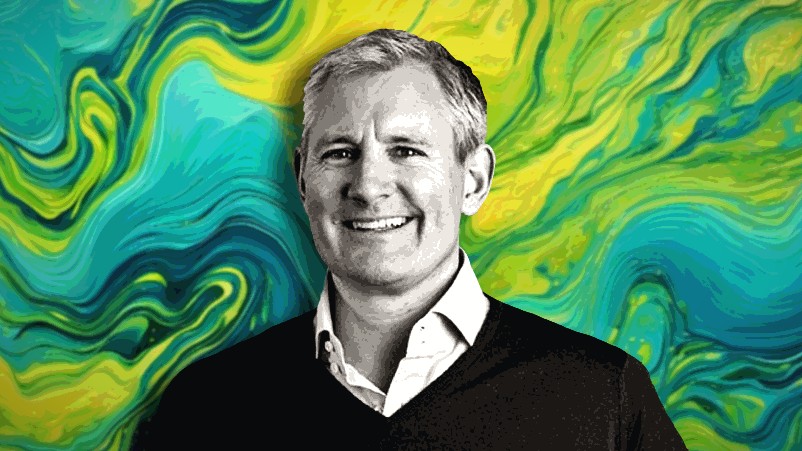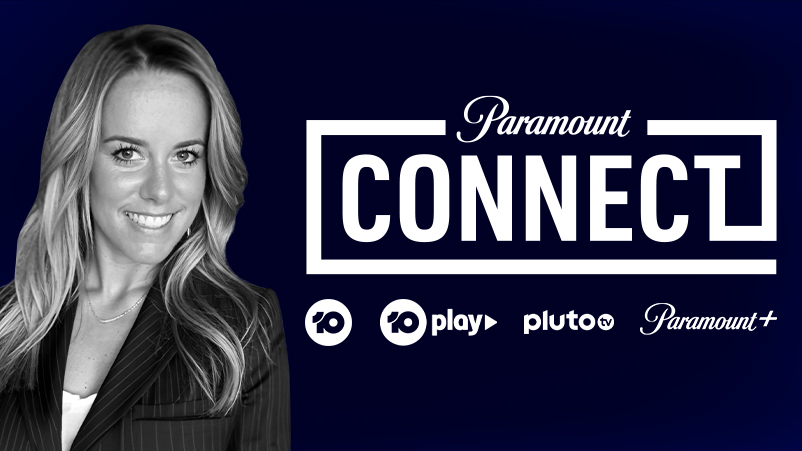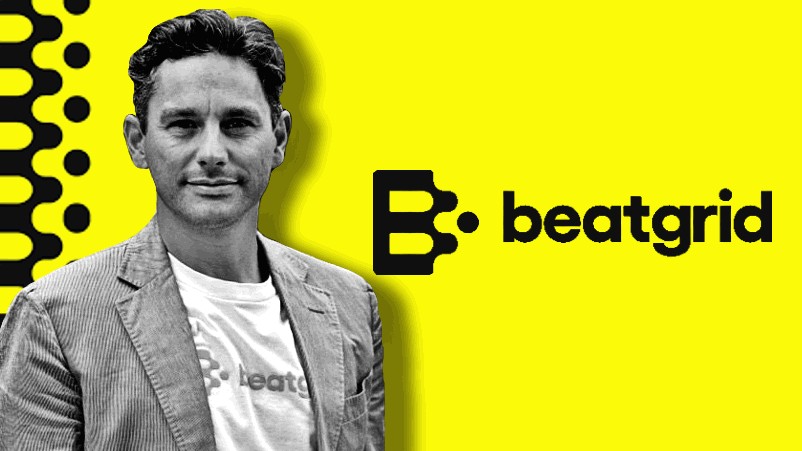Wavemaker global boss Toby Jenner: Alphabet, Meta, Amazon, TikTok to eat two thirds of total ad dollars within five years, consolidation incoming – but not for WPP's agency brands

Toby Jenner: Platform-first world already here – and accelerating hard.
Wavemaker global boss Toby Jenner sees Alphabet and Meta eating half of all ad dollars, not just digital, by 2030 latest. Amazon and maybe TikTok will take that up to two thirds, leaving everyone else fighting over the rump. Cue consolidation. But Jenner, a one time MediaCom Australia CEO, thinks that makes life more sustainable for those left standing – and while some analysts may disagree, doesn't see wholesale consolidation of agency brands and functions as a result. But offshoring and automation is rising and Jenner thinks privacy reforms will reward those that get precision contextual targeting right at a local level. Production house Hogarth, he suggests, will play a major role.
What you need to know:
- Wavemaker global boss and one time MediaCom Australia CEO Toby Jenner thinks Amazon has the most joined-up operating model and will eat an increasing share of the global ad dollar share as a result.
- Two thirds of the total ad market by 2028-2030 will go to Alphabet, Meta, Amazon and maybe TikTok, depending on what goes down in the US, per Jenner. He didn’t mention the giant Chinese marketplaces going all out for global scale.
- Jenner sees consolidation incoming for traditional media and suggests incumbent media owners need to evolve faster and leverage local content advantage “from the bottom up” versus global tent-pole content from the streamers piling into ads.
- He wouldn’t be drawn on AI and automation’s headcount impact, but said offshoring is gathering pace. Jenner likewise implied analysts suggesting WPP needs to follow Publicis’ brand consolidation playbook are taking a binary read of more nuanced market auguries.
[Amazon has] a great model – and probably the best example I've seen from a tech company driving a future-focused way of way of operating.
Wavemaker global CEO Toby Jenner sees 60 per cent of total global ad dollars going to four companies within five years.
“By 2028, 2030, Alphabet and Meta will account for about half of every global [ad] dollar invested,” he told Mi3. Along with Amazon and TikTok, depending on what happens with US moves to force ByteDance to divest, “you're probably looking at those four being about two thirds of the global advertising market.”
Does that put agencies out of a job – or at least a big part of it – given brands are increasingly in-housing big chunks of digital media buying?
Jenner suggests not.
“You can't in-house all the activity across walled gardens, can you? They [big tech] can optimise brilliantly within their own channels. We have to optimise across those platforms.”
The upshot is that the likes of Wavemaker have already flipped from a TV-first buy to a digital-first buy. “We’re going to start with a platform,” said Jenner. “Then you add reach on that rather than the other way around … You can [now] get the vast majority of reach needs through digital.”
Jenner thinks traditional media companies – broadcasters – need to accelerate their streaming transition to win locally given the competition coming from global streamers now piling into ads. He thinks Amazon is in prime position.
“I love what Amazon's doing – on Thursday night football, for example, they've got the commerce play, they've got the content play, they've got the technology play.
“The yardage, who’s thrown what… that’s all done by AWS. Prime Video is the content provider and then they’ve got the commerce solution tying it altogether with their retail platform. So I think that's a great model – and probably the best example I've seen from a tech company driving a future-focused way of way of operating.”
He thinks the global streamers will be precisely that in terms of global tent pole content – hence the local broadcast incumbents have to compete on local content.
“They have to evolve quicker. They have to have their streaming businesses to be competitive locally … I think the opportunity for the local linear TV providers is to really do bottom up.”
More dollars, fewer receptacles
While brands are spending increasing amounts on martech, customer experience and their owned channels, Jenner suggests that has not come at the expense of paid media.
“I don't see a decline in media investment. There's always been money spent on IT, on infrastructure and there's probably more money spent now on how you connect those experiences together … To say that the money's coming out of here and going in here, no, that's not that's not happening.”
Concentration of media investments into a few large platforms increases the likelihood of media owner consolidation.
“I think there'll be more consolidation, absolutely. But I don't think that's a bad thing, because I think that will be more sustainable for the long-term future of their businesses,” said Jenner.
You don't have to just collapse everything into being one group. We can fold in if we need to, or we can fold out into the individual agency teams to ensure that we can grow and take on more clients across different portfolios.
Non-binary brand approach
Likewise some of the large ad holding companies are also consolidating their brands, most notably Publicis and Dentsu. Madison & Wall analysts and one-time WPP global business intelligence chief Brian Wieser has suggested WPP and Interpublic need to go faster and harder in that regard.
But Jenner thinks otherwise. He points to WPP Open, the group’s centralised marketing operating system, which “funnily enough is built on the back of Wavemaker’s operating system,” as a way to pool resource without killing off agency brands.
“We've put together our entire product team into one place. So rather than individual agencies developing products, and then it building up and pushing it out, we've taken all the product people put them together and built one end-to-end connected platform,” per Jenner.
“You get the best of both worlds. You don't have to just collapse everything into being one group. We can fold in if we need to, or we can fold out into the individual agency teams to ensure that we can grow and take on more clients across different portfolios.”
It's about what's that key messaging in that postcode and driving that messaging, getting that content right – and building that engine, as we are with Hogarth, is what I get quite excited about.
AI, automation, offshoring
Jenner wouldn’t be drawn on the impact of AI and automation on headcount. A range of 20-30 per cent put to him was rejected as too high. But he said offshoring work across the group continues apace – as with other major holdcos and the large IT services consulting firms – and WPP’s hubs in Delhi, Bogota and Warsaw are increasingly busy around “hubbed activation of search, social, programmatic and commerce … But that could evolve as we move forward to connected TV”, said Jenner.
“So yes, offshoring is happening now, we are hubbing, in most of the big pitches … there will be a component of offshoring, because clients want to see benefits. Do it once and do it brilliantly. Why wouldn't you?” he added. “But that doesn't replace local capabilities. We've got local capabilities everywhere.”
Where next
In terms of spend, Jenner is “bullish” on influencer channels. He thinks privacy impacts locally and globally will drive a greater shift to contextual approaches, particularly for CPG advertisers with less access to first party data. But he said the upshot is that data now “becomes a recipe”, i.e. more ingredients will be required.
“I think it's really about how you aggregate the right data play for you as an organisation, and then how you access it … We have done a lot of work around geo [location] and the role that can play by looking at postcode, looking at sales, looking at consumer behaviour, and then driving addressable communications through either connected TV or out of home or digital, that allows us to really start to pinpoint [audiences, intent and opportunity],” said Jenner.
“I don't think we've quite got as an industry the content to fuel that. But I think that's where we go.
“It's about what's that key messaging in that postcode and driving that messaging, getting that content right – and building that engine, as we are with Hogarth, is what I get quite excited about.”
Which offers at least a ray of light for Australia’s traditional media owners now beefing up their local capabilities, if they can execute at speed. Jenner repeats the message. “We're in a state of flux and people need to evolve.”


